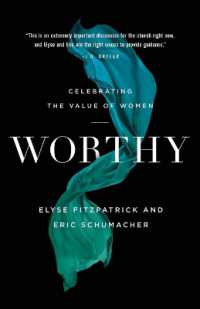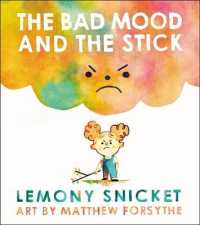- ホーム
- > 洋書
- > 英文書
- > Religion / Ethics
Full Description
Freedom of religious expression and assembly has never been under greater threat in post-Soviet Russia. The infamous Yarovaya Law of 2016 has made good on previous legislative endeavours to curtail the activities of undesirable religious entities. Behind the curtain, the influence of the Russian Orthodox Church looms large over state policy and the decline in religious liberties and pluralism. Lincoln E. Flake explains the churchs hostility to non-traditional groups as a consequence of historical-structural factors arising from its Soviet experience and immediate-strategic factors arising from its experience in the post-Soviet religious free market. It was not until the 2014 annexation of Crimea that church-state interests coincided to produce unprecedented collusion. The Church, which had previously only served symbolic purposes for domestic political advantage, was now required for more meaningful active measures in Russias all-of-government approach to advancing its national security strategy. Reciprocation produced the Yarovaya Law and further quid pro quos account for the relapse into religious intolerance. This study contextualizes the churchs present-day posture on religious pluralism by appealing both to historical experience and insights that Rational Choice Theory offers to the study of religious actors and religious behaviour.
Contents
Foreword by Peter Martland; Acknowledgments; The Path of Protectionism: Church, State, and an Oppressive Institutional Design for Religion; Legacies of Sovietism: Structural-Historical Constraints; Post-Soviet Market Features: The Immediate-Strategic Context; The Georgian Orthodox Church: A Case Study in Authoritarianism; The Lithuanian Catholic Church: A Case Study in Indifference; The Russian Orthodox Church: Finding Its Voice at the Expense of Others; Regional Findings and Methodological Implications; Collusion That Matters: Church-State Symbiosis After Crimea; Bibliography; Appendix: Interview/Questionnaire Questions.







